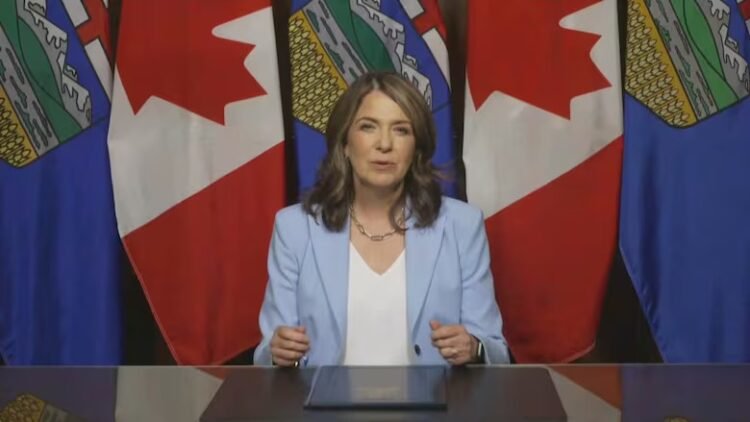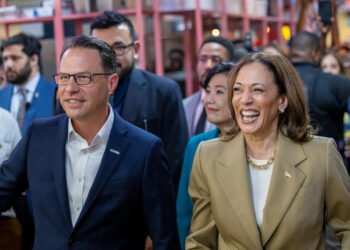As Canada prepares to celebrate its 158th birthday on July 1, Alberta is poised to mark a very different milestone just three days later — one that could open the door to a referendum on independence.
Starting Friday, Premier Danielle Smith’s United Conservative government will officially enact changes that lower the signature threshold required to initiate province-wide referendums. The move is widely seen as a nod to Alberta’s growing separatist movement and an effort to expand “direct democracy” in the province.
But it has also triggered a political showdown — one that pits competing petitions, ideologies, and visions of Alberta’s future against each other.
The Push for Independence
Mitch Sylvestre, CEO of the Alberta Prosperity Project, says his organization will file paperwork with Elections Alberta on Friday to begin a formal petition asking voters: Do you agree the province of Alberta shall become a sovereign country and cease to be a province of Canada?
With 120 days to gather approximately 177,000 signatures, Sylvestre is confident the movement is gaining steam. “I would not be surprised if that referendum was held right now that we could possibly even win it,” he told The Canadian Press, citing growing disillusionment with federal energy and fiscal policies.
He also pointed to Prime Minister Mark Carney’s perceived failure to rebuild trust with the West, especially after years of federal programs that Albertans say drain the province’s natural resource wealth without sufficient return.
The Fight to Stay
But just as the independence push gained momentum, so too did its opposition.
Former Alberta deputy premier Thomas Lukaszuk, now out of politics, preempted Sylvestre’s campaign by filing his own petition — one that would enshrine Alberta’s commitment to remain within Canada.
Elections Alberta approved Lukaszuk’s application on Monday. Due to filing under the old rules, he faces a steeper challenge: 600,000 signatures in 90 days. Still, Lukaszuk says the urgency of the moment justifies the effort.
“There’s only one petition at a time,” he emphasized, noting that his legally recognized initiative blocks Sylvestre’s from proceeding simultaneously. “So mine precludes theirs.”
Lukaszuk slammed the Smith government’s legislation as reckless, warning it could open the floodgates to a parade of populist ballot questions — many of which may backfire. “This is like playing with constitutional dynamite,” he said.
Uncertain Legal Waters
Even if Sylvestre’s petition succeeds, the path forward is far from clear. Legal experts note that any vote in favor of separation would plunge Canada into uncharted constitutional territory. Negotiations would be inevitable — and extraordinarily complex — involving not only federal and provincial governments, but also First Nations with distinct land rights and constitutional standings.
Despite this, Smith has defended the new legislation, calling it a way to reflect mounting frustration with Confederation.
“We need more mechanisms for direct democracy,” the premier said, while reiterating her longstanding call for Alberta to be “sovereign within a united Canada” — a phrase Lukaszuk dismisses as nonsensical. “That’s like me saying I’m single within the confines of my marriage,” he quipped.
Ottawa on the Hot Seat
Pressed last week on what her government is doing to address separatist sentiment, Smith turned the blame squarely toward Ottawa. She demanded that Carney repeal several controversial federal policies, including the proposed cap on greenhouse gas emissions, the net-zero electricity grid mandate, and the West Coast oil tanker ban.
“This is really in Ottawa’s hands,” she said.
Lukaszuk, however, cautioned against using the threat of secession as political leverage. “Premier Smith has every right to negotiate with the federal government. But threatening national unity is not the way to do it.”
A Province Divided — Again
Recent polls suggest support for Alberta’s separation remains below majority levels, though interest in holding a referendum appears to be growing. As both sides prepare for battle, what began as a procedural policy change could soon become a defining moment in Alberta’s relationship with the rest of Canada.
Whether it ends in unity or rupture, the political fuse has been lit — and the countdown to petition day begins Friday.

 English
English



























































